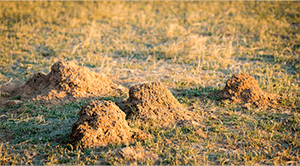An Overview of Class 7 English Meadow Surprises Worksheets
FAQs on Class 7 English Meadow Surprises Worksheets
1. Who is the poet for Meadow surprises poem?
Lois Brandt Phillips is a well-known American poet and novelist who wrote Meadow Surprises.
2. What is the moral of the poem?
The poet wants to explain how to enjoy the essence of nature's beauty and also tells that every creature teaches a lesson.
3. How many stanzas are there in the poem?
There are four stanzas in the Meadow Surprises poem.
4. What are dandelions?
Dandelions are bright yellow-coloured flowers. They appear bright and golden from the far but flutter when we reach them. These dandelions are one of the meadow surprises
5. What is the meaning of the term meadows?
It is a piece of land that is mostly covered with grass.
Recently Updated Pages
Important Questions Class 7 Hindi Durva Chapter 10

Important Questions and Answers for Class 7 English Chapter 5 2025-26 Free PDF

Important Questions and Answers for Class 7 English Chapter 4 2025-26 Free PDF

Important Questions and Answers for Class 7 Social Science Chapter 9 2025-26 Free PDF

Important Questions and Answers for Class 7 Hindi Chapter 8 2025-26 Free PDF

Important Questions and Answers for Class 7 English Chapter 11 2025-26 Free PDF

Trending pages
CBSE Important Questions for Class 7 Science - 2025-26

Comprehensive English Grammar Guide for Class 7 (2025-26)

CBSE Important Questions for Class 7 Maths - 2025-26

CBSE Important Questions for Class 7 Maths Perimeter and Area - 2025-26

Class 7 English Grammar Ncert Solutions Notice Writing

CBSE Important Questions for Class 7 Science Transportation in Animals and Plants - 2025-26

Other Pages
One Day International Cricket

What is the Full Form of UGC? Detailed Guide for Students

Pongal 2026: Bhogi Pongal, Thai Pongal, Mattu Pongal, Kanum Pongal - Dates, Time, Rituals, and Significance

Fastest 50 in t20 International

Important Days in February 2026 – Check All National & International Events List

Who is Carlos Alcaraz? Biography, Age, and Achievements









